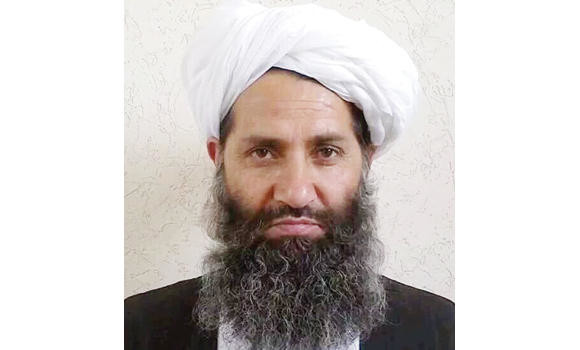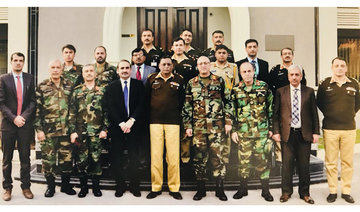WASHINGTON: President Donald Trump’s order to pause all federal grants and loans sowed widespread confusion on Tuesday over its impact on far-reaching programs such as Medicaid, sending nonprofits and government agencies scrambling to understand its scope and prompting immediate legal challenges. The sweeping directive was the latest step in Trump’s dramatic effort to overhaul the federal government, which has already seen the new president halt foreign aid, impose a hiring freeze and shutter diversity programs across dozens of agencies. Democrats castigated the funding freeze as an illegal assault on Congress’ authority over federal spending, while Republicans largely defended the order as a fulfillment of Trump’s campaign promise to rein in a bloated budget.
Despite assurances from the Trump administration that programs delivering critical benefits to Americans would not be affected, US Senator Ron Wyden, the top finance committee Democrat, said his office had confirmed that the portal doctors use to secure payments from Medicaid had been deactivated in all 50 states.
Medicaid, which covers about 70 million people, is jointly funded by both the states and the federal government, and each state runs its own program.
White House press secretary Karoline Leavitt could not say whether the program had been frozen, telling reporters at her first briefing since Trump took office on Jan. 20, “I’ll get back to you.”
Leavitt later posted on X that the federal government was aware of the Medicaid portal outage and that no payments had been affected. The website will be back online “shortly,” she said. The order, laid out in a memo from the Office of Management and Budget, which oversees the federal budget, will freeze federal grants and loans as of 5 p.m. Tuesday (2200 GMT) while the administration ensures they are aligned with the Republican president’s priorities, including executive orders he signed ending diversity, equity and inclusion efforts.
Federal grants and loans reach into virtually every corner of Americans’ lives, with trillions of dollars flowing into education, health care and anti-poverty programs, housing assistance, disaster relief, infrastructure and a host of other initiatives.
The memo said Tuesday’s freeze included any money intended “for foreign aid” and for “nongovernmental organizations,” among other categories.
The White House said the pause would not impact Social Security or Medicare payments to the elderly or “assistance provided directly to individuals,” such as some food aid and welfare programs for the poor.
In a second memo released on Tuesday, OMB officials said funds for Medicaid, Head Start, farmers, small businesses and rental assistance would continue without interruption. The freeze followed the Republican president’s suspension of foreign aid last week, a move that began cutting off the supply of lifesaving medicines on Tuesday to countries around the world that depend on US development assistance.
Disputed effects
Four groups representing nonprofits, public health professionals and small businesses filed a lawsuit on Tuesday challenging the directive, saying it “will have a devastating impact on hundreds of thousands of grant recipients.” Democratic state attorneys general also said they would ask a court on Tuesday to block the freeze from taking effect.
“From pausing research on cures for childhood cancer to halting food assistance, safety from domestic violence, and closing suicide hotlines, the impact of even a short pause in funding could be devastating and cost lives,” Diane Yentel, president and CEO of the National Council of Nonprofits, one of the four groups that sued on Tuesday, said in a statement.
In Connecticut, the reimbursement system for Head Start — a government program that provides early education and other benefits to low-income families — was shut down, preventing preschools from paying staff, Democratic US Senator Chris Murphy said on X. The OMB memo did not appear to exempt disaster aid to areas like Los Angeles and western North Carolina that have been devastated by natural disasters. Trump pledged government support when he visited both places last week.
At the Tuesday briefing, Leavitt would not specifically say whether Head Start or disaster aid would be frozen.
Agencies were trying to understand how to implement the new order.
The Justice Department’s Office of Justice Programs, its largest grant-making arm, will pause $4 billion in funding for community-based programs, nonprofits, states and municipalities, according to a person familiar with the matter and a memo seen by Reuters. Among the affected programs include the National Center for Missing and Exploited Children, which receives more than $30 million a year from the Justice Department.
The OMB memo asserted the federal government spent nearly $10 trillion in fiscal year 2024, with more than $3 trillion devoted to financial assistance such as grants and loans. But those figures appeared to include money authorized by Congress but not actually spent — the nonpartisan Congressional Budget Office estimated government spending in 2024 at a much lower $6.75 trillion.
Trump’s Republican allies have been pushing for dramatic spending cuts, though he has promised to spare Social Security and Medicare, which make up roughly one-third of the budget. Another 11 percent of the budget goes toward government interest payments, which cannot be touched without triggering a default that would rock the world economy.
Democrats challenge ‘lawless’ move
Democrats immediately criticized the spending freeze as unlawful and dangerous.
Senate Democratic Leader Chuck Schumer said the administration did not have the authority to prevent spending approved by Congress.
“This decision is lawless, destructive, cruel,” Schumer said in a speech to the Senate. “It’s American families that are going to suffer most.”
The US Constitution gives Congress control over spending matters, but Trump said during his campaign that he believes the president has the power to withhold money for programs he dislikes. His nominee for White House budget director, Russell Vought, who has not yet been confirmed by the Senate, headed a think tank that has argued Congress cannot require a president to spend money.
US Representative Tom Emmer, the No. 3 Republican in the House of Representatives, said Trump was simply following through on his campaign promises.
“You need to understand he was elected to shake up the status quo. That is what he’s going to do. It’s not going to be business as usual,” Emmer told reporters at a Republican policy retreat in Miami.
At least one Republican centrist, US Representative Don Bacon, said he hoped the order would be short-lived after hearing from worried constituents, including a woman who runs an after-school program that depends on federal grant money.
“We’ve already appropriated this money,” he said. “We don’t live in an autocracy. It’s divided government. We’ve got separation of powers.”
























